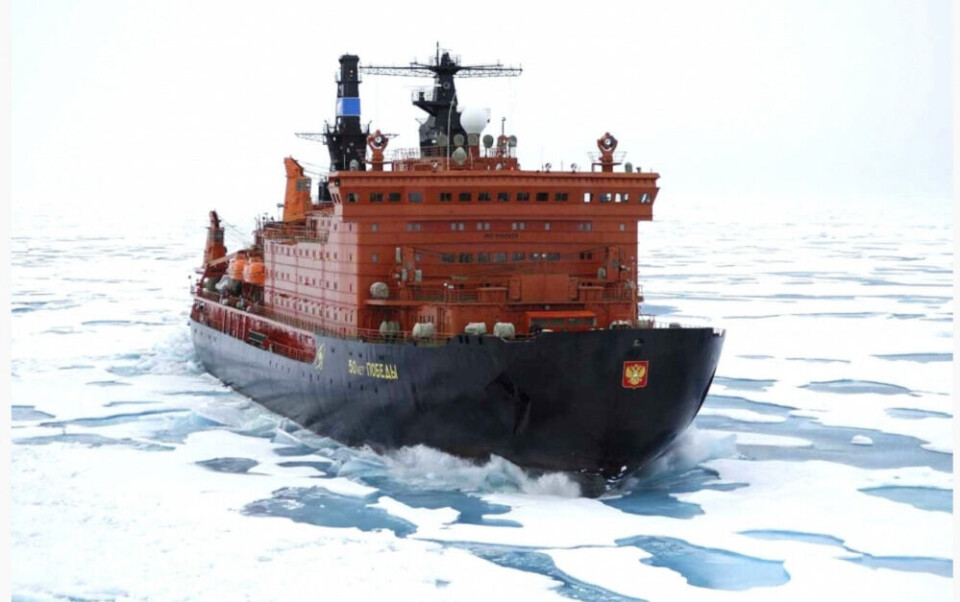
50 Let Pobedy icebreaker sails to North Pole in Clean Arctic project
Onboard is a group of experts and volunteers who want to focus on what can be done to clean up accumulated waste in Russia's Arctic territories.
Traditionally, the giant nuclear-powered icebreaker “50 Let Pobedy” is used during the summer months to bring wealthy Russian and international tourists to the top of the world. Voyages to the North Pole from Murmansk have been arranged annually since the early 1990s, but as the pandemic hinders global tourism, several scientific expeditions are carried out as an alternative this summer.
The icebreaker assisted well-known explorer Fedor Konyukhov with his solo journey in a tent on a drifting ice floe. The Russian survivalist, who disembarked on the ice on the first voyage, drifted across the North Pole for ten days and was met again as ”50 Let Pobedy” came to the North Pole on its second tour earlier this week.
Et innlegg delt av Федор Конюхов (@fedorkonyukhov)
During the second voyage, the expedition members consisting of biologists, geologists, glaciologists and historians will both report on and aid in the solution of the problem of pollution in the Arctic.
One of the scientific missions is to study microplastics in the ocean, which is a vital part of the greater Clean Arctic project.
Fedor Konyukhov emphasized the responsibility Russia ought to take as well as the magnitude of the Clean Arctic project. “We have the longest Arctic coastline as well as the biggest rivers,” Konyukhov said to TASS news agency.
“The rivers are taking everything into the Arctic,” he added.
The Clean Arctic project was suggested by the captain of “50 Let Pobedy”, Dmitry Lobusov. With the “big Arctic cleanup” the captain hopes to set focus on how to clear the Arctic region from years of accumulated scrap metal and fuel.
Lobusov said he got the idea after his first-hand experience of seeing how the Arctic had been negatively impacted by humans throughout the last few decades.
His initiative is sipported by Nikolai Savelyev, Poseidon Expeditions Polar Travel Club’s founder.
“This program is rather big. The Russian Federation has the biggest Arctic area, and, of course, distances there are huge,” Savelyev said to TASS.
The group is expected to return to Murmansk from the Arctic on August 2nd.
















